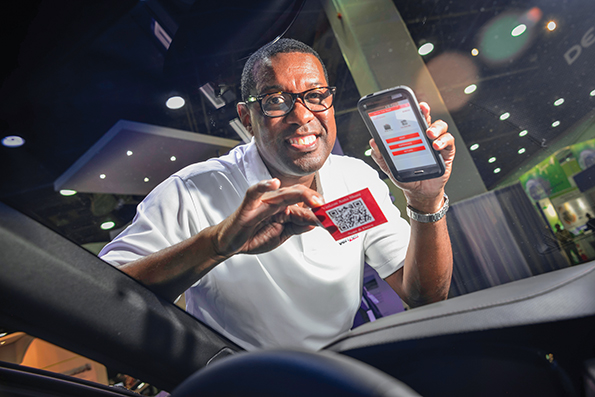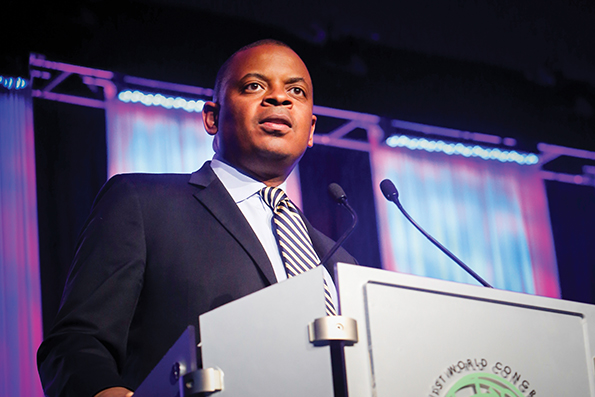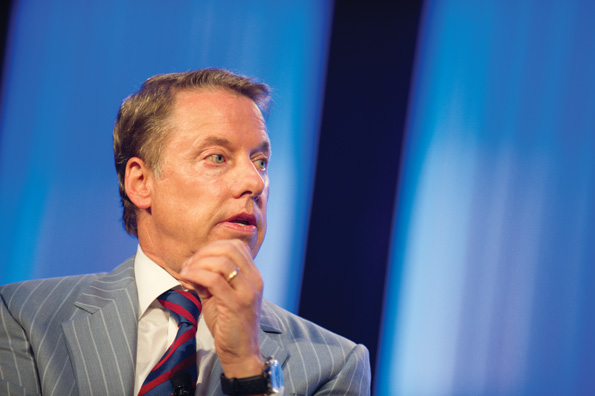‘Bringing connectivity to every vehicle’ was the vision Lowell McAdam (pictured), chairman and CEO of
He said by 2017 there will be three times more networked devices than people in the world and such connectivity could radically alter transportation. “GE estimates that connected technologies have the potential to reduce the global transportation industry’s demand for fuel by 14%.”
However, he said today Americans waste $120bn a year sitting in traffic, 30% of a city’s congestion is caused by people looking to park and only 7% of America’s 250 million vehicles are connected to communications networks.
McAdam told delegates: “At Verizon, we think the technology exists… to connect the vast majority of these vehicles to a wide range of intelligent services. We are committed to delivering an off-the-shelf solution that will bring the benefits of telematics to everyone next year.” While acknowledging the work already undertaken he said: “we need to move beyond individual projects to think in a holistic way about integrating all these smart systems – connected cars, roads, buildings, power grids and communications – into a comprehensive intelligent ecosystem.”
In pointing out President Obama’s comments that the US is the world’s largest economy but ranks 28th in terms of infrastructure investment, he issued a rallying call. “We have some decisions to make about how to invest in our future… and we’ve learned that investing in last century’s infrastructure may be cheaper in the short run but it’s way more costly in the long run.
“We need to fight for spectrum policies and tax laws that promote capital investment in the communications technologies on which intelligent transportation systems depend,” he concluded.
Verizon plans to launch off-the-shelf telematics
‘Bringing connectivity to every vehicle’ was the vision Lowell McAdam (pictured), chairman and CEO of Verizon Communications put before delegates at the second plenary session. He said by 2017 there will be three times more networked devices than people in the world and such connectivity could radically alter transportation. “GE estimates that connected technologies have the potential to reduce the global transportation industry’s demand for fuel by 14%.”










